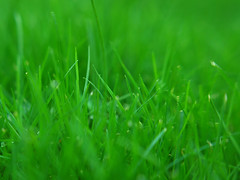 For a second, there, I thought I was reading The Onion. No such luck.
For a second, there, I thought I was reading The Onion. No such luck.
In separate studies in Baltimore and St. Louis, government-funded researchers spread sludge fertilizer on lawns and vacant lots in poor, black neighborhoods to see whether the fertilizer would inhibit lead poisoning in children. In case you need a refresher (who doesn't now and then), sludge is what's left over at the waste treatment plant -- a semisolid mess made up mostly of human waste, with a few goldfish and anything else we've flushed down the drain. It's likely to contain heavy metals, antibiotics, lots of that stuff that's ending up in our water, and who knows what else. Recent studies show that earthworms in sludge fertilizer absorb all kinds of chemicals.
The idea behind the project is that iron and phosphorous in the sludge can chemically bind lead, preventing it from being bioavailable to children (or other animals) who eat the soil.
Go ahead. Read that last paragraph again.
Do they actually mean to say that soil amended with sludge fertilizer is safe to eat?
I applaud the researchers' attempt to find a low-cost way of mitigating lead exposure. I really do. But the government has been trying to find an economically beneficial way of disposing of human waste for the past 30 years, and it seems to be getting a bit out of hand. That these studies were carried out in poor black neighborhoods and, according to the AP story, there's no evidence that the subjects had follow-up medical exams, makes the whole endeavor a little smelly.
Photo by hufse.